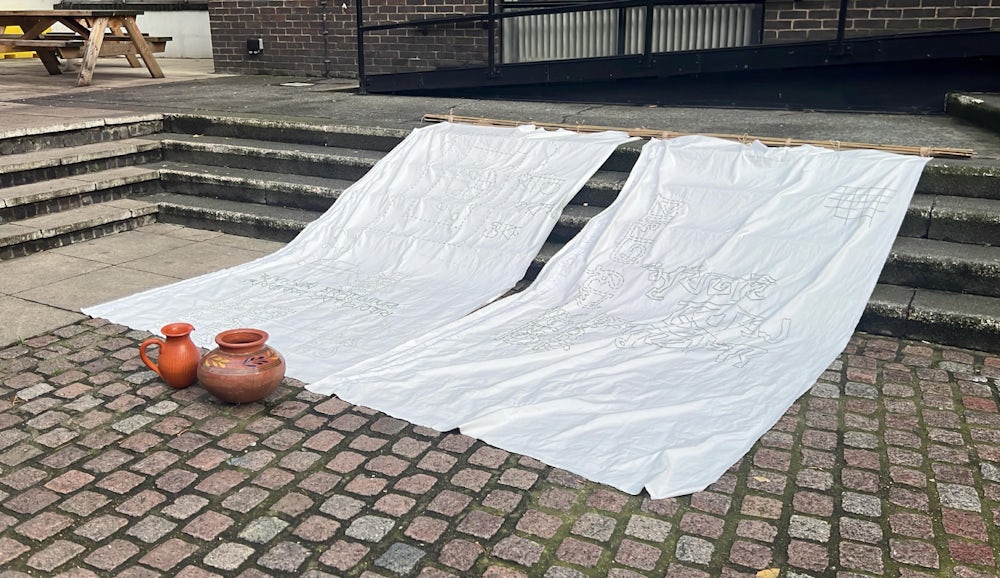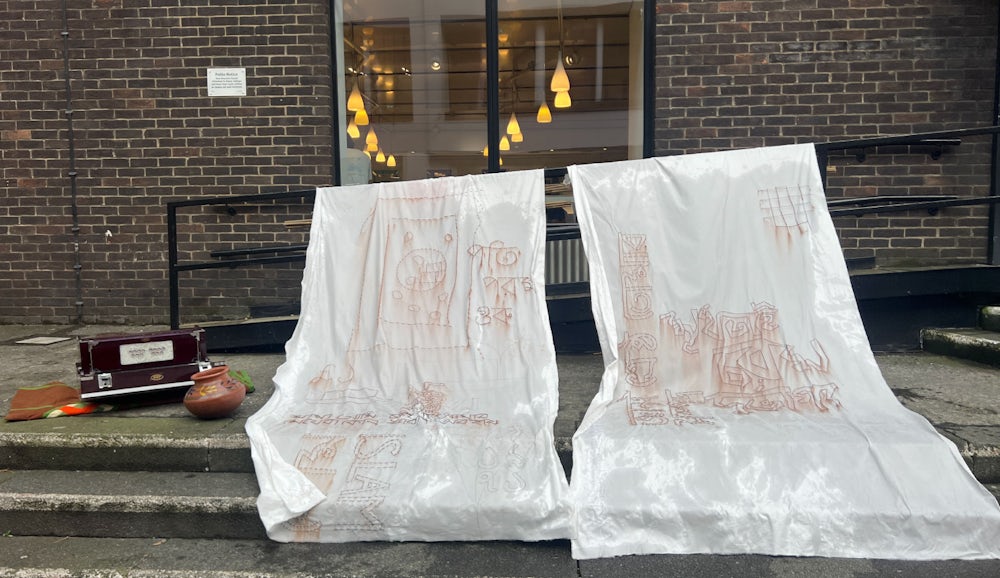Imran Haque
"A Melancholy Note Båjé"
Keywords: performance, colonialism, installation, culture, resistance
Three cotton sheets stitched using traditional Bengali Nakshi Kantha methods with the stories, histories, memories and pains of first generation Bangladeshis who arrived on the shores of the UK in the 1970s, stand as an homage and testament to the struggles of that first generation. The thread itself had been dyed with industrial dye, and mud collected from the banks of the River Thames - the water connecting both the UK and Bengal in trade, commerce and colonisation for well-over the past three centuries. The sheets were hung by being tied onto UK-grown bamboo canes that had been hand-tied with jute rope; the very material which led the British to come to the shores of Bengal in the early 18th Century and eventually led to its colonisation, persecution, genocidal activities and ultimately: the arrival of my grandfather, grandmother and their contemporaries to the UK.
Inspired by Tagore’s song: A Melancholy Note Plays, and artists who combine cultures like Farah Al-Qasimi, the triptych stands as a testimony of thanks for their hard-work and effort which allows me as a British-Bangladeshi to explore my own take on our culture and imbue it with my own stories. The performative piece is made up of the stitching, spoiling, and hanging of the sheets, while a singular note is played from a family-heirloom harmonium. The performance is culture, and culture is what we make of it - transcending border and ethnic groups, I wanted to explore it as a visual and sonic landscape of fabric, thread and a singular, melancholy note.


